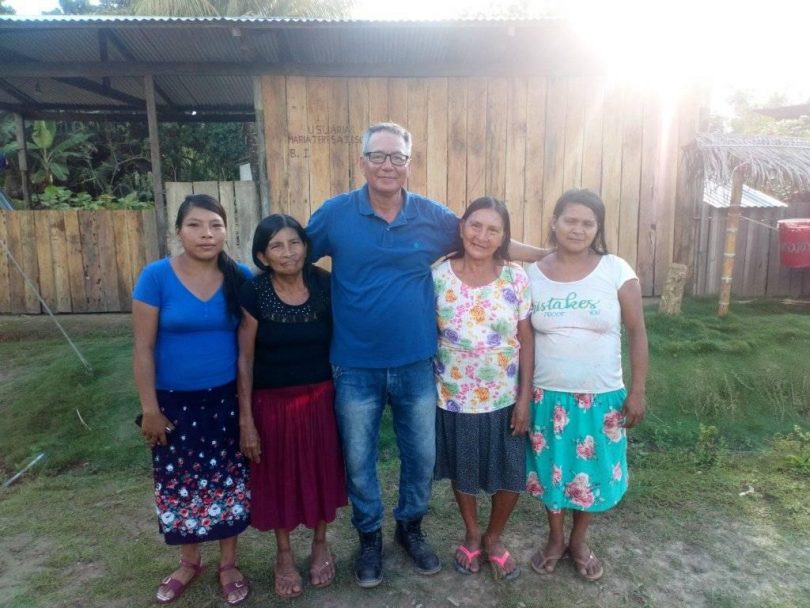Assigned Lessons:
- Jeremiah 17:5-210
- I Corinthians 15:12-20
- Luke 6:17-26
Did you notice anything different as you read Luke’s account of the Beatitudes? We are more used to hearing Matthew’s version. Here is what it sounds like:
Matthew 5:1 When Jesus saw the crowds, he went up the mountain; and after he sat down, his disciples came to him. 2 Then Jesus began to speak, and taught them, saying: 3 “Blessed are the poor in spirit, for theirs is the kingdom of heaven.4 “Blessed are those who mourn, for they will be comforted.5 “Blessed are the meek, for they will inherit the earth.6 “Blessed are those who hunger and thirst for righteousness, for they will be filled.7 “Blessed are the merciful, for they will receive mercy.8 “Blessed are the pure in heart, for they will see God.9 “Blessed are the peacemakers, for they will be called children of God.10 “Blessed are those who are persecuted for righteousness’ sake, for theirs is the kingdom of heaven.11 “Blessed are you when people revile you and persecute you and utter all kinds of evil against you falsely[b] on my account. 12 Rejoice and be glad, for your reward is great in heaven, for in the same way they persecuted the prophets who were before you.
But Luke’s version is different:
Luke 6:17 Jesus came down with them and stood on a level place, with a great crowd of his disciples and a great multitude of people from all Judea, Jerusalem, and the coast of Tyre and Sidon. 18 They had come to hear him and to be healed of their diseases; and those who were troubled with unclean spirits were cured. 19 And all in the crowd were trying to touch him, for power came out from him and healed all of them.
20 Then he looked up at his disciples and said:
“Blessed are you who are poor,
for yours is the kingdom of God.
21 “Blessed are you who are hungry now,
for you will be filled.
“Blessed are you who weep now,
for you will laugh.
22 “Blessed are you when people hate you, and when they exclude you, revile you, and defame you[a] on account of the Son of Man. 23 Rejoice in that day and leap for joy, for surely your reward is great in heaven; for that is what their ancestors did to the prophets.
24 “But woe to you who are rich,
for you have received your consolation.
25 “Woe to you who are full now,
for you will be hungry.
“Woe to you who are laughing now,
for you will mourn and weep.
26 “Woe to you when all speak well of you, for that is what their ancestors did to the false prophets.
Both Gospel writers had much of the same material to choose from as they put their pens to a scroll. They each had options as to how to place this story to speak to their particular audience and what they needed to hear. Matthew, writing to a primarily Jewish audience, has Jesus going up on a mountain to speak these words, and it sounds very much like Moses going up the mountain. And perhaps you could see these Beatitudes almost as a new 10 Commandments.
Matthew’s version spiritualizes each of the conditions, for instance: “Blessed are the poor in spirit,” whereas Luke simply says: “Blessed are the poor.” but Luke sees it differently. Here Jesus comes down to them and stands on a level place. Before Jesus teaches, he touches those who need to be healed. It then says that as Jesus taught his disciples, he looked up to them. Further, it is interesting that Luke notes that power came out of Jesus, indicating that it took some effort on Jesus’ part.
Matthew has nine “Blessed” notations; Luke only has four. And then Luke adds four “woes” that are addressed to those who are rich, those who are full, those who are laughing, and those who have others speak well of them. WOW! Here Jesus is one who stands with the poor, the hungry, those who mourn, and those who find themselves on the outside of society.
There are times when the awesome Christ of power and might is what I need in life, but more often than not, I feel that I need the Christ that comes to us wherever it is that we find ourselves, even when we are in the worst of circumstances.
Where does this call us to be as congregations today? Where does this call us to be as followers of Jesus? How does this help us to define our mission?







